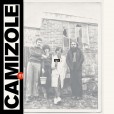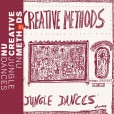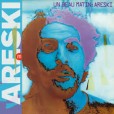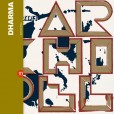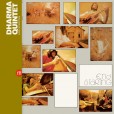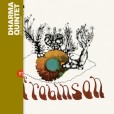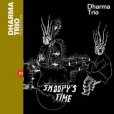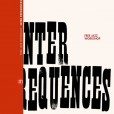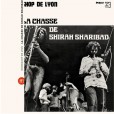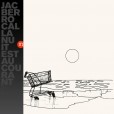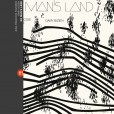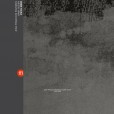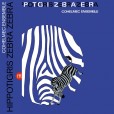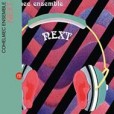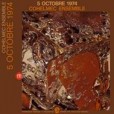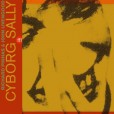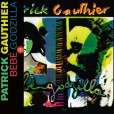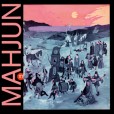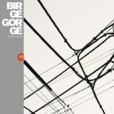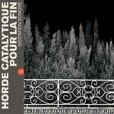Your basket is empty

‘Winding operations down after End Starting, Archipel is likewise planned-out music, mixing free rock and European free jazz in a series of collective explosions based on abrupt and contrasting improvisations. For much of the time, piano, guitar and saxophone intertwine over intense rhythms. Everything is electric, with the density of On The Corner, and flashes of viciousness all its own.
‘Along with the Cohelmec Ensemble, the Workshop de Lyon, the Full Moon Ensemble, Perception, Armonicord or the Michel Portal Unit, the Dharma Quintet stands out as one of the most important examples of free jazz as it was played in France at the beginning of the 1970s.’
“We try to reach within free jazz the same sort of rhythmic cohesion as in bop… based not exactly on tempo, but something which feels like tempo. A kind of underlying pulse.”
This is Dharma’s first LP: from the same neck of the woods as the Cohelmec Ensemble, a mixture of spiritual jazz, free jazz and electric Miles — especially for its keyboards — infused by the anti-authoritarian politics of collectivism and anti-hierarchism.
Saxophonists Jef Sicard and Gérard Coppéré are moonlighting from Claude Delcloo’s Full Moon Ensemble.
Their second LP, released three months after Mr. Robinson in 1970.
Funky jazz-rock — tight, direct, restless. Pianist Patricio Villarroel lays on the Corea / Jarrett vibes; alongside bassist Michel Gladieux and drummer Jacques Mahieux.
Their first LP, released in 1973 after six years together, with the first drummer Pierre Guyon having been replaced by Christian Rollet in 1970. Brilliant, roiling and free, with a celebratory lyricism to its grapplings with Cecil Taylor, Gary Peacock, Milford Graves and co, and a wheeling melancholia straight from Ornette.
With the arrival of clarinettist-saxophonist Louis Sclavis in 1973 (and the departure of trumpeter Jean Mereu in 1975), the Workshop De Lyon was born of the Free Jazz Workshop.
A warmly accessible, beautifully performed, joyous mixture of wailing improv and propulsive, rootical preparations, this second album derives its upful, digressive theatricality from the Arts Ensemble Of Chicago, and its urgent sublimification of vernacular rhythms and melodies from Albert Ayler. Wild and free, but grounded in stuff like Bechet, Monk and George Russell.
Terrific.
COH as in Jean Cohen (saxophones), EL as in Dominique Elbaz (piano) and MEC as in the brothers François and Jean-Louis Méchali (bass and drums) — joined by the American clarinettist and flautist Evan Chandlee for this debut album, originally released by Saravah in 1969.
“We wanted to avoid that kind of ‘free’ which is characterized by pounding drumming and a saxophonist freaking out in the high register, that type of music that kicks off suddenly then stops without us being able to sense the motivation. There is never any difference in intensity: nothing is destroyed, nothing is created, nothing is elaborated, nothing is questioned — when, even on the simple level of sound, there is so much that can be done.”
With French roots running back through the music of Jef Gilson, and pitched at the time somewhere between ESP and Actuel/BYG, with full-blooded nods to the likes of Cecil Taylor, John Coltrane and Walt Dickerson, this is expert, exuberant music-making, searching out its own way.
Ten tracks, even-handedly improvised and composed, beautifully played; intense and free-spirited but always engaging, attentive and communicative.
Top-notch sound; heavyweight gatefold sleeve with obi-strip; twelve-page booklet.
Their second LP, from 1971, with guitarist Joseph Dejean from the Full Moon Ensemble propelling the music forwards, as pianist Dominique Elbaz stands down.
The sound swells and contracts dramatically across the eleven tracks and interludes, with fresh senses of break-down and silence, and new intimacy. There is some Steve Lacy to its fierce repetition of key phrases; some Sharrock to Dejean; sparing experimentation with effects; portions of central African polyphony (Boa Constrictor), summer-breeze funk (Desert Angel), and plenty of characteristically rootsy prog and cosmic skronk.
A live recording of a concert given at the Theatre de l’Est Parisien.
Stretched-out but closely textured and highly evocative, more bluesy than before, and brooding with Milesian intensity.
There is a strong spirituality to all of Cohelmec’s music ... but here they go deep.
Try Teotihuacan. Killer.
The 1994 return of pioneering electronic guru Richard ‘Heldon’ Pinhas to the forefront of the French underground scene. The fruits of a two-year collaboration with John Livengood from Red Noise and Spacecraft, inspired by Norman Spinrad’s novel Rock Machine. First vinyl issue.
Keyboardist with Heldon, Magma and co, joined on his debut LP by the likes of Richard Pinhas and Christian Vander — no less — together with Bernard Paganotti, François Auger, Didier Batard… An outstanding mixture of synthy electronics and jazz-rock. First vinyl issue.
Their classic, influential, second Saravah, from 1974, joined by the great Brazilian percussionist Nana Vasconcelos. Leftist folk prog turned outernational psychedelic fusion. Try fourteen-minutes-long La Ville Pue.
Unique improvised pop from 1974, by Jean-Jacques Birgé — one of the first French synthesizer players (ARP 2600) — and guitar virtuoso Francis Gorgé.
‘Have you ever imagined what a meeting between the Silver Apples and Sonny Sharrock would sound like?’
The French avant-garde quartet, four years in, improvising with instruments from Western, African, Middle-Eastern, and Far-Eastern cultures. Recorded for Futura in 1971, this is their sole album. “We just wanted the sound, the raw sound-texture, before being treated and shaped by any cultural code.”
